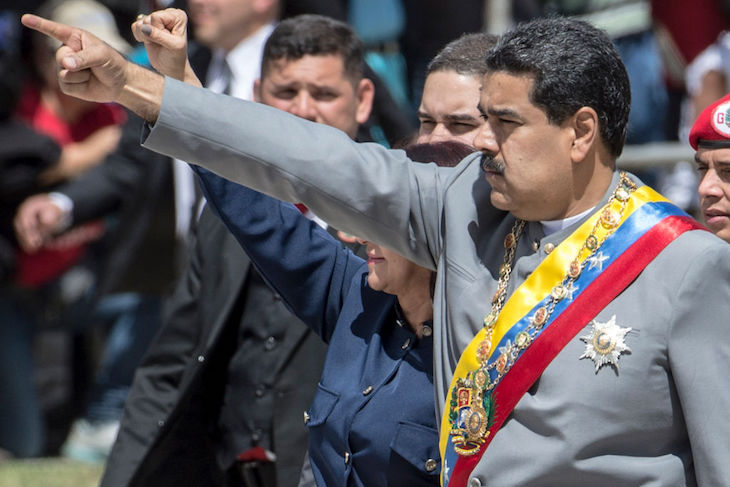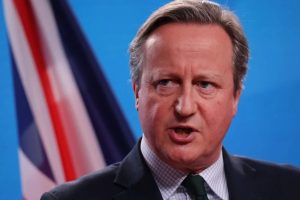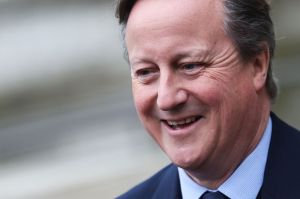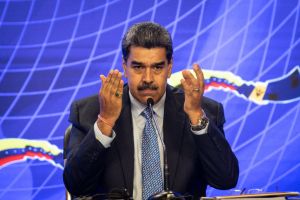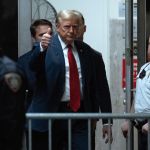It is no mere coincidence that Donald Trump turned his attention to Venezuela straight after announcing the withdrawal of US troops from Syria. Nicolás Maduro, fighting for his survival on so many fronts at home and abroad, probably hasn’t had much time to think about the man who thus inadvertently created the political quagmire engulfing him: Syrian leader Bashar Al Assad. Maduro would do well, though, to brush up on how Assad survived against all the odds, as would Trump. The knowledge could prove invaluable for averting another reckless US push for regime change abroad.
Trump’s decision last month to accept Assad remaining in power in Syria enraged many Middle East hawks, who long saw Assad’s removal as the springboard for war against Iran. National Security Adviser John Bolton and Secretary of State Mike Pompeo thus set off for the Middle East, each determined in his own bumbling fashion to undermine Trump’s peace plan. However, during their trips they were rebuffed or ridiculed at every turn, as they confronted a stark new reality in the region. The Gulf monarchies and Israel, having concluded that neither Trump nor the international community had any stomach for war against Iran (or even unreservedly backing US-imposed economic sanctions), secretly agreed that Turkey should henceforth be seen as the overriding regional security threat because of its leader’s promotion of political Islam. Arab countries were planning for the re-opening of their embassies in Damascus. The Arab League was preparing to readmit Syria. In return for his return to the Arab fold, Assad will be pressured to contain Syrian ally Iran.
Bolton and Pompeo retuned to Washington humiliated. But they were not, alas, marginalized. For the great tragedy of Trump’s presidency is that America’s military industrial complex cannot survive without an external enemy, and because Trump needs the support of its representatives in the Senate he cannot survive without bowing down to the demand for endless war. Overnight, in the predictably compliant American media, Maduro thus became the new Evil Foreign Dictator Who Has to Go.
Trump meanwhile whispered into warmonger Lindsey Graham’s ear: ‘How do you feel about military action in Venezuela?’ Trump’s heart isn’t in this militarism, but the neocons don’t care. With the constant threat of impeachment, Trump therefore finds himself in the absurd position of essentially being blackmailed by them over his alleged covert Russian collusion during the presidential election campaign into overtly interfering in Venezuela’s domestic elections.
Will Trump go so far as to authorize military intervention in Venezuela? Thankfully, that remains unlikely, despite John Bolton’s little stunt with the notepad saying ‘5000 troops to Columbia’. With Syria, Trump understood that Assad, while hardly an exemplary leader, became increasingly popular the louder calls grew for his ouster in Washington and other Western capitals. As in Venezuela, the Syrian opposition was fragmented, opportunistic, corrupt and sometimes bought off by foreign players. There is as of now no viable political option for a post-Maduro Venezuela either. Indeed, under threat of foreign military aggression and the resulting chaos, Venezuelans, like Syrians, will more likely opt to stick with the devil they know. Military intervention would also risk a massive regional migrant crisis that would soon reach America’s southern border, as civil war in Syria created a migrant crisis in Europe that so appalled Trump. At this stage it is more probable, then, that Trump is allowing the neocons to beat the war drums as a way of keeping his enemies closer as the Russiagate investigation finally comes to an end.
